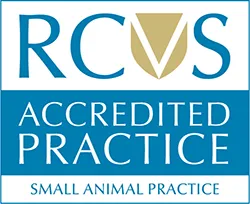Lungworm in Dogs: What It Is and How It Can Affect Your Pet
Lungworm is a parasitic infection that can have serious consequences for dogs. The parasites can travel through the bloodstream, affecting vital organs such as the heart and lungs, and potentially impacting other systems throughout the body. Early recognition and treatment are key to keeping your dog healthy.
Signs and Symptoms of Lungworm in Dogs
Lungworm infection can present with a variety of symptoms, including:
-
Persistent coughing
-
Difficulty breathing
-
Reluctance to exercise
-
Weight loss
-
Reduced appetite
-
Vomiting or diarrhoea
-
Prolonged bleeding from minor cuts or injuries
If your dog shows any of these signs, it’s important to contact our veterinary team at Spinney Vets as soon as possible.
How Dogs Catch Lungworm
Dogs typically become infected with lungworm by accidentally ingesting larvae found in slugs, snails, or frogs. Infection can also occur if larvae are present on toys, food, or a dog’s coat. Once inside the dog, the larvae mature and travel through the bloodstream, eventually settling in the heart and blood vessels.
Some infections may initially appear mild and go unnoticed. About four weeks after infection, adult lungworms begin producing larvae, which can lead to serious health issues if untreated. Lungworm is contagious indirectly: infected dogs shed larvae in their faeces, which are then picked up by slugs or snails. If another dog consumes these infected creatures, the cycle continues.
Book a dog worming treatment today
Preventing Lungworm in Dogs
Prevention is far better than treatment when it comes to lungworm. At Spinney Vets, we recommend discussing regular preventative care with your veterinarian. Many effective worming treatments, available via prescription, protect against lungworm as well as other common parasites. Your vet will advise on the most suitable product and schedule for your dog, based on their lifestyle and risk of exposure.
Treatment for Lungworm in Dogs
With prompt diagnosis and appropriate treatment, most dogs make a full recovery from lungworm. Treatment will be tailored to your dog’s individual situation and the severity of the infection. Left untreated, lungworm can lead to serious complications, including inflammation, internal bleeding, and damage to vital organs.
Diagnosis typically involves analysing a sample of your dog’s faeces to confirm the presence of lungworm larvae. Early detection is crucial to prevent long-term health problems and ensure your dog remains happy and healthy.
Treat lungworm in dogs with Spinney Vets
Lungworm in Dogs FAQs
Can Dogs Get Lungworm in the UK?
Yes – dogs in the UK can absolutely contract lungworm. In recent years, there has been a noticeable increase in cases across the country. Certain areas, such as southern England and South Wales, have been identified as higher-risk regions, where infections are reported more frequently.
How Common is Lungworm in Dogs?
The prevalence of lungworm varies across the UK. While it may not be common in every area, it is considered an increasing threat, particularly in regions where slugs, snails, and frogs—the primary carriers of the parasite—are abundant. Awareness and preventative measures are especially important for dogs living in or visiting these high-risk locations.
Preventing Lungworm in Dogs
Fortunately, there are several steps you can take to protect your dog from lungworm:
-
Regular Preventative Treatment
Your veterinarian can prescribe worming treatments that often include protection against lungworm. Consistently using these medications is one of the most effective ways to reduce risk. -
Avoiding Slugs, Snails, and Frogs
Lungworm larvae are commonly found in these creatures. Prevent your dog from eating them, whether during walks or in your garden. -
Outdoor Water Bowls
Change water in outdoor bowls regularly to reduce the risk of contamination from larvae. -
Extra Caution in High-Risk Areas
If you live in or visit regions with higher populations of slugs and snails, be extra vigilant during walks, especially after wet weather.
Can You See Lungworm in Dog Poo?
No, adult lungworms are not visible in faeces. Infected dogs do shed microscopic larvae in their stool, but these are too small to see without laboratory testing. Diagnosis is usually confirmed through veterinary analysis of faecal samples.
Can Humans Get Lungworm?
The type of lungworm that affects dogs in the UK, Angiostrongylus vasorum, does not typically infect humans. While it is a serious parasite for dogs, it is not considered a zoonotic risk.







